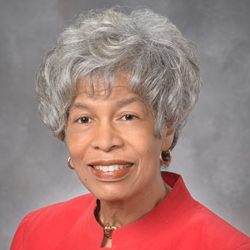
by Katherine Tyler Scott
Managing Partner, Ki ThoughtBridge, USA
17 April 2020
Share:
According to leadership experts, James Kouzes and Barry Posner, “Moments of courage are moments of truth; moments in our lives when we come face-to-face with the essence of who we are.” Who we are is a matter of character and character is a matter of leadership. From Aristotle to Alasdair (MacIntyre), moral philosophers have known this. In this challenging moment, character is critical.
We find ourselves in the midst of a global pandemic that has exacerbated socioeconomic, class, political, racial, and religious fault lines; at the same time, it has evoked altruistic sensibilities, shared basic needs, our common humanity, and the unyielding connections and undisputable interdependence of our lives. Most important, it has called attention to the significance of the character of leaders and the powerful influence they wield over individuals and systems.
In this unexpected time of social distancing we can observe this in real time. I confess that I have been impressed and distressed by what I have observed. At times I have felt inspired; far too often I have been stunned into silence by the lack of character. Questioning and pondering the meaning and relevance of character in leadership is not only an academic exercise, it is a moral imperative, and as we can see daily, it is a matter of life and death.
The importance of character in leadership led me to reflect on the conceptual influences in my practice and how they might be useful in the current reality. One of them is Warren Bennis.
We find ourselves in the midst of a global pandemic that has exacerbated socioeconomic, class, political, racial, and religious fault lines; at the same time, it has evoked altruistic sensibilities, shared basic needs, our common humanity, and the unyielding connections and undisputable interdependence of our lives.
I first “met” Warren Bennis through his study of 100 leaders from very diverse backgrounds, disciplines, and sectors. It has been said that Bennis was motivated by a question raised during the 1960’s social upheaval and college campus disruptions when he was President of the University of Cincinnati. The question? “Where have all the leaders gone?” Although there were notable differences in the respondents he interviewed, Bennis discovered that they all shared four traits indicative of character: the management of attention, the management of meaning, the management of trust, and the management of self. I have used them as scaffolding in explaining why character matters in leadership.
- The Management of Attention
Bennis believed that this trait required leaders to develop and articulate a clear vision that provides focus and shared understanding of direction. Vision is a preferred image of the future and emerges from the voices and needs of those dependent on the judgement of the leader. The articulation of vision, while aspirational, must be reality based. This requires leadership with a capacity to read reality truthfully so that they can communicate truth in ways that mobilizes responsible action for the greater good. - The Management of Meaning
Leaders have a moral imperative to tell the truth and this requires more than sharing data. It involves the responsibility of interpreting facts (not personal opinion) so that we all can see the importance of reasoned judgement and critical thinking in decision-making that impact lives. In this pandemic, reliance on a leaders’ interpretation is the difference between health and illness. Managing meaning is a powerful way that leaders can convey and reinforce core values that help to create a culture with the ability to sustain moral and ethical behaviors.
Character is about discerning the meaning and value of our and others actions over time; it is about who we are and who we are becoming as individuals, communities and society as a whole. This is what makes the practice of leadership morally and ethically significant; it is why it matters. - The Management of Trust
Trust is what holds systems together. Knowing what kind of trust is required and which ones need to be developed is critical in managing a crisis. There are three kinds of trust, Competence, Compassion, and Congruence.- Competence
This means the leader has a demonstrated ability and skill to do the job. It is their credibility and determines whether their words will be believed and matter. Inconsistent or double messages, distortion of truth, and denial of facts are all destructive to developing trust in leadership’s ability to lead responsibly. In the absence of credible leadership people become confused and anxious and can be susceptible to errors in judgement. - Compassion
Some leaders have a natural capacity to communicate the empathy sought in difficult times. This is trust that a leader genuinely cares about the needs and interests of others and will act on their behalf. It is an emotional intelligence trait which increases the sense of security in others that they can endure the unknown. Leaders who lack this and try to express it come across as inauthentic and engender doubt, confusion, and distrust. - Congruence
This trust is basic in the development of character and integrity. The alignment between the values, beliefs, and behavior leads to a consistency and dependency that the leader can be counted on. The leader is not different with different groups. They can adapt their message but not their core identity; they are themselves wherever, and with whomever, they are.
- Competence
- The Management of Self
A well-differentiated leader understands their own strengths and weaknesses and is able to be a non-anxious presence in highly anxious systems. They are able to identify the dynamics that can cause the tendency of groups to engage in regressive behaviors such as blaming, scapegoating, and attacking others. They can intervene in systems and times of crisis because as a colleague describes it, they are solid at the center and flexible around the edges. Ed Friedman captures the importance of this in his book, A Failure of Nerve:
“On the broadest scale, the preservation of self in its leaders is a society’s greatest protection against descending into a counter-evolutionary mode. It is only the emergence of self in its leadership that can enable society, family, institutions, or nation to evolve out of a regression.”
We are feeling the impact of major disruption worldwide and observing how it evokes and tests the true character of leaders. The ways in which they respond matter; their ability to manage attention, meaning, trust, and self can change the course of history. While scientists search for a vaccine for the coronavirus may the ILA community of leaders, and all who believe in the importance of good leadership, contribute to the development of character. It is the antidote to regression.

Before beginning her tenure at KI ThoughtBridge, Katherine Tyler Scott founded and served as President of Trustee Leadership Development, Inc., a resource center for governance leaders and not-for-profit organizations. Katherine is a past chair of the ILA board and convener of the ILA Applied Leadership Global Learning Community. She previously directed the Lilly Endowment Leadership Education Program, a statewide leadership education initiative for professionals in youth service, and she also developed leadership programs and resources for the Community Leadership Association.

